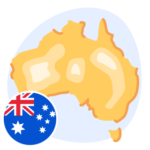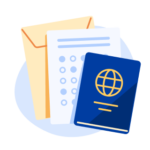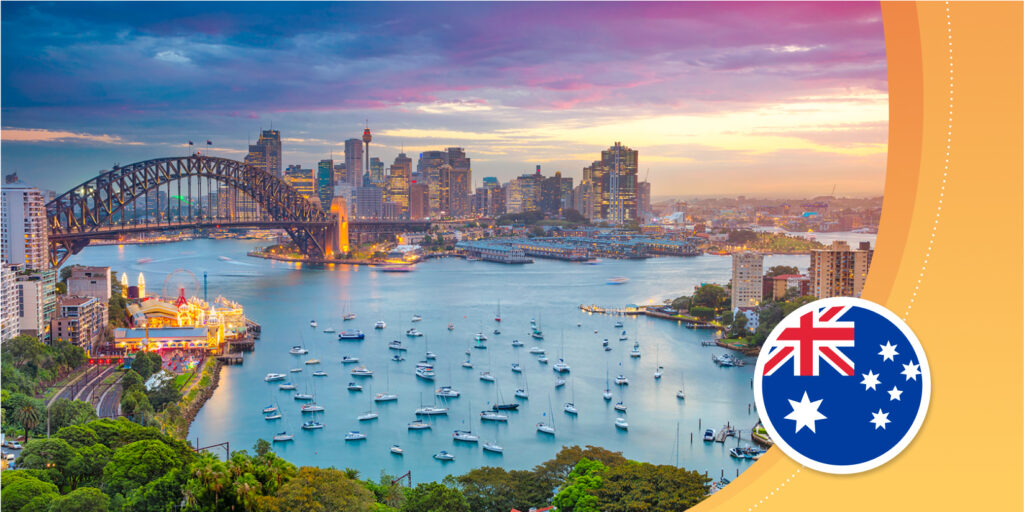From updated visa requirements to accepted English-language tests, Australia’s recent policy updates are affecting international students. While some changes, like the soft cap on international student numbers, are still unfolding, we’re here to share what you need to know. Read on for the answers to some of your top questions about Australia’s 2024 policy updates.
Note: This article is provided as information only, and is subject to change as policies are updated. It was most recently updated on July 3, 2024. For official guidance relating to Australian student visas, visit Study Australia, or the Department of Home Affairs’ Student visa page.
The ApplyBoard platform can help you find a course that fits your needs in five popular countries, including Australia, the United States, and Canada. Try it today!

Policy Update Questions
How is the international student intake process changing in Australia?
The Australian government is proposing a soft cap on the number of international students colleges and universities can accept. It’s called a “soft cap” because institutions may negotiate for more students if they build international and domestic student housing. In comparison, Canada recently placed a temporary “hard cap” on international student numbers, which was set at the national level and is much less negotiable.
Further changes related to this announcement include:
- International students in a higher degree by research course (like a master’s degree by research or a PhD) are exempt from the incoming cap.
- While not finalized yet, discussions are happening about exempting students in regional Australia and students taking in-demand courses from the cap.
- New education providers must show “a track record of quality education delivery to domestic students before they are allowed to recruit international students.”
- When a student moves between institutions in Australia, their education agent will no longer receive a commission for the transfer.
- Education providers under regulatory investigation are prevented from enrolling new international students.
- Education providers may not own education agent businesses.
- Stricter guidelines around the ownership and registration of education agents and providers are coming.
When will the student cap start in Australia?
The Australian cap on incoming international students is expected to begin in early 2025.
Which students will the cap affect?
International students enrolling in undergraduate or postgraduate by coursework courses will be most affected. Students in higher degree by research courses are exempt from the cap under Australia’s 2024 policy updates. It is currently unclear if primary or secondary school students will be included in the cap.
What are “higher degree by research” courses?
These courses are “a formal course of graduate study leading to the acquisition of advanced skills, techniques, and knowledge in the conduct of research.” Most higher degree by research courses are at Level 10 in the Australia Quality Framework (doctoral degree), but this group also includes some master’s degree by research courses, which are in Level 9.

English Language Proficiency Test Questions
What are the new Australian English-language proficiency levels?
Earlier this year, the government updated English-language proficiency levels for incoming international students.
Here is how the minimum proficiency levels have changed:
- Student visas: increased from IELTS (or equivalent) 5.5 to 6.0
- Students in a packaged English Language Intensive Courses for Overseas Students (ELICOS): increased from IELTS (or equivalent) 4.5 to 5.0
- University foundation or pathway programs that deliver English language training: remains at IELTS (or equivalent) score of 5.5
Note: If students are taking an ELICOS course first, then moving to an academic course, they may be eligible for a student visa with a lower proficiency score. Check the Department of Home Affairs‘ website for details.
For students preparing to graduate, the Temporary Graduate work visa’s minimum score has also increased from IELTS (or equivalent) 6.0 to 6.5.
Can I use TOEFL test results for my student visa?
The Australian Government has completed their review of the updated TOEFL iBT (internet-based test). Now, TOEFL iBT tests taken on or after May 5, 2024, are acceptable proof of language proficiency for visas.
Students who want to use their TOEFL iBT score for their visa application must take the test in person at a test centre. The Australian government doesn’t accept results from any English language tests taken online.
Can I use existing TOEFL iBT results for my student visa?
Maybe. It depends on when you took the test, and where: it must have been in-person at a secure test centre.
Here are some guidelines:
- TOEFL iBT test results issued on or before July 25, 2023 are valid for two years for Australian visa purposes.
- TOEFL iBT test results issued between July 26, 2023 and May 4, 2024 (inclusive) will not be accepted for Australian visa or migration purposes. During this time, TOEFL iBT was not an approved test. However, you may still use these results for study course applications.
What do the different TOEFL exam scores mean? Learn more on our blog.

Student Visa Questions
How much money do I need to show as proof of financial capacity?
Starting on May 10, 2024, if you’re applying to study in Australia, you must show access to A$29,710 to prove you can cover your living expenses for one year (12 months). If you’re bringing a partner or children, you must also show access to funds to cover their living expenses (A$10,394 for a partner and A$4,449 per child).
This amount is tied to Australia’s average cost of living. However, the specific cost of living varies in different regions. Especially in cities like Sydney and Melbourne, it may be higher.
You must also show that you can pay for the first year of your course fees, and cover your travel to Australia. The travel amount varies by region:
- A$2,500 if applying from East or Southern Africa.
- A$3,000 if applying from West Africa.
- A$2,000 for travel costs if applying from anywhere else outside Australia.
- A$1,000 for travel costs if you are applying in Australia. If you’re in Australia but will be returning to Africa, the amount is A$1,500.
How much does it cost to apply for a student visa?
As of July 1, 2024, the fee for international student visas will increase to A$1,600.
Can I still apply for a student visa from within Australia?
Starting on July 1, 2024, this will become much more challenging. The Australian Government announced in June 2024 that starting in July, Visitor Visa holders and Temporary Graduate Visa holders will no longer be able to apply for Student visas while onshore in Australia.
How else has the Australian student visa application changed?
On March 23, 2024, Australia’s Genuine Temporary Entrant requirement, where student visa applicants explained why they wished to study in Australia in a 300-word essay, was replaced by the Genuine Student requirement (GS). Now, the application process includes a targeted list of questions, which require shorter, evidence-based written answers.
What is the Genuine Student Requirement?
The Genuine Student requirement (GS) is the newest part of the Australian student visa application. It includes four standard questions, and an additional question for students who have held a study visa before or who are applying for a student visa while already in Australia.
GS questions ask about:
- Ties to family and community
- Work and academic history
- How completing this course will help you
- Whether you understand what the course you’re travelling for requires
- Your understanding of what living and studying in Australia is like
- Why you applied to this specific course and institution
It’s important to show evidence that the answers you give are true. Attaching supporting documents like transcripts, employment history, or tax returns can be helpful.
The GS requirement is designed to choose students whose top goal is studying in Australia. However, it is more inclusive of students in high-demand fields who also hope to work. The Department of Home Affairs notes: “The GS requirement is intended to include students who, after studying in Australia, develop skills Australia needs and who then go on to apply for permanent residence.”
Take a closer look at the GS requirement, and strategies for responding effectively.

We hope this outline of Australia’s 2024 policy updates helps you make an informed decision. As you consider your options and prepare for your study journey, there’s a lot to keep in mind, but the ApplyBoard team is here to help.
Ready to start your study abroad search? Let ApplyBoard help you find programs at academic institutions in Australia which match your goals and skills.







